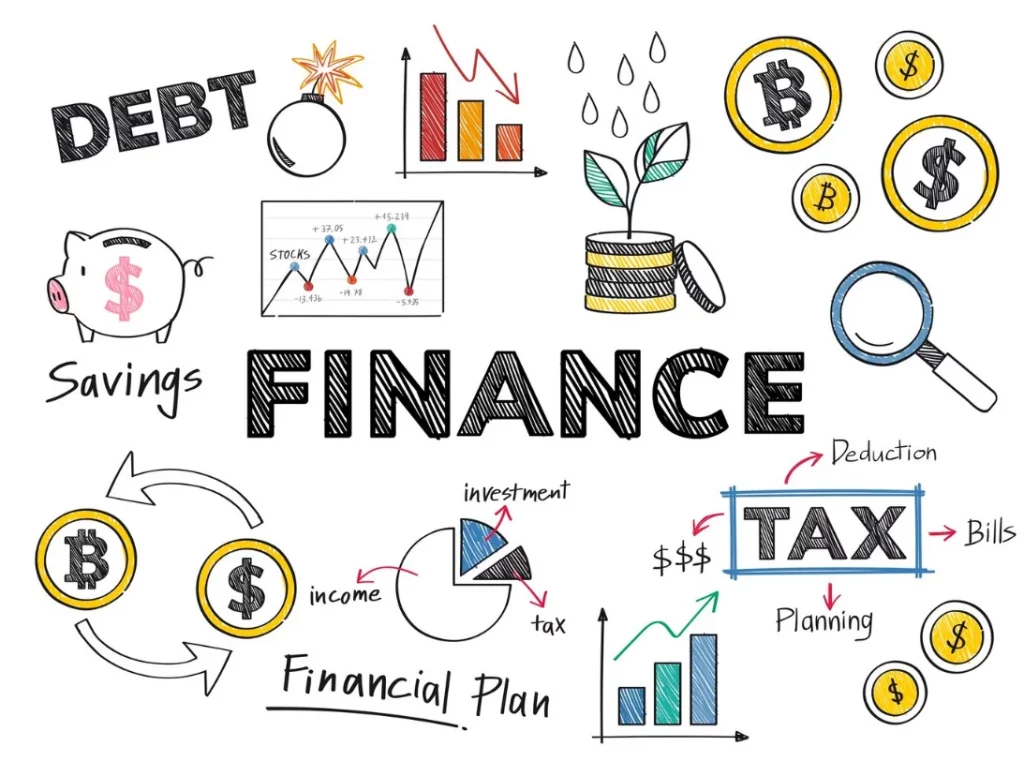Why do finance interview candidates want the top 20 finance interview questions and answers? The answer is simple. The interview candidates need to recall the subject quickly. Moreover, the finance interview will focus on basic concepts. It will also help them deal with practical situations. However, when you give these top 20 finance interview questions and answers revision becomes easy. Hence, we have given below the Top 20 Finance Interview Questions and Answers 2026 to help them crack the interview. The candidates will certainly find this blog useful before the interview.
Top 20 Finance Interview Questions And Answers 2026
1. Can you explain the term finance?
The answer of this basic Finance interview question is that Finance means the management of money and obtaining funds for business. You can gain professional expertise in the finance field by enrolling in a Finance Training Course.
2. Can you brief me about the Financial Statement?
The Financial Statements show the profitability and the financial position of the business. The financial statement includes the following major statements viz.,
- the Balance Sheet
- Statement of Profit & Loss, and
- Cash Flow Statement.
3. What is a Cash Flow Statement? Explain
A cash flow statement shows the cash received in a year and the cash paid during the year. The three activities of the cash flow statement determine the sources and application of cash. These three types of activities are as follows:
- Operating
- Investing, and
- Financing activities.
4. What is a Liquidity Ratio? What are its types?
How to know if the company is in a position to pay its liabilities when they become due|? So, we have to calculate the Liquidity Ratio to know the position. Liquidity ratios include the following :
- Current Ratio, and
- Liquid Ratio.
5. What is the Return on Equity (ROE)?
While there are several tools available to calculate the profitability of the company, Return on Equity stands out as the best. Two factors are involved in (ROE) viz., efficient management of funds and assets, and generating profits.
6. What do you mean by the term Capital Budgeting? Name the commonly used techniques.
Capital Budgeting is the decision to invest money in capital expenditure projects. However, these decisions give long-term benefits. The following are the techniques of capital budgeting:
- Payback Period.
- Discounted Pay-Back Period
- Accounting rate of return
- Net Present Value (NPV)
- Profitability Index
7. Can you tell me what is Loan Syndication?
A very common Finance Interview Question can be answered by saying that When a group of banks finance a big project instead of one single lender, this process is called loan syndication. Loan syndication occurs for the following reasons:
- When the loan amount is very big, and
- The idea is to spread the risk amount to all lenders.
8. What are the features of Debentures?
The features of debentures are as follows:
- The debenture is a form of borrowing.
- They carry a fixed rate of interest.
9. What is Preference Capital?
Preference Capital is a type of capital raised by the Company by issuing preference shares. Preference means priority. So, when the company is wound up, the capital and dividends of preference shareholders are paid out on a priority basis.
10. What is meant by Hedging? What are the types?
Hedging is a step taken by an investor to avoid future losses. It involves buying or selling an investment. Thus, it helps reduce the risk of loss of a given stock. It is an advanced risk management strategy. The types of hedging are given below:
- Fair Value Hedges,
- Cash Flow Hedges and,
- Net Investment Hedges.
11. What are the ways to manage Working Capital effectively?
Effective management of working capital involves the following steps, viz.,
- Keeping enough stock to meet the needs and avoiding over-stocking,
- Collecting receivables from customers regularly, and
- Negotiating good payment terms from suppliers.
12. Are Commercial Banks different from Investment Banks?
Commercial Banks Take deposits from people and Help businesses by giving them loans. At the same time, Investment Banks deal with Companies. To raise money from the public in the form of shares and debentures, they offer proper advice to the company.
13. Can you brief me about Non-Performing Assets?
These Assets do not generate any income for the bank. It is because the borrower has not made any payment. It, therefore, results in a loss to the banks since they will not receive any income from the loan.
14. What is beta? What does it indicate?
Beta measures the movements in the price of a stock compared to the overall market. If the beta is higher than 1, the stock is considered as high risk. However, If the beta is less than 1, the stock is considered less risky.
15. What is a Dividend Growth model?
According to the Dividend Growth Model, the effect of market conditions are irrelevant. The value of a stock, therefore, depends upon the following two factors:
- dividend paid during the current year, and
- the future growth.
16. What is meant by restructuring?
Restructuring is a step taken to put a company back on the rails by taking the following steps:
- Agree with the creditors or shareholders, and
- Change the financial and operational structure.
17. What do you mean by the Secondary Market?
The secondary market is a place where previously owned shares are bought and sold. Major stock exchanges are the secondary market.
18. What is meant by Swap Ratio?
The Swap Ratio is a formula used during mergers or acquisitions. The number of shares of the buying company that are given in exchange to the selling company forms the swap ratio.
19. What are call and put options?
A Call option Is the right to buy an asset at a fixed price and on a future date.
A Put option is a contract that is about the right to sell. It should be an asset and must be at a fixed price to be sold on a future date.
20. Can you brief me about Financial Risk Management?
It tells you the method to identify the business risk. It examines the impact of the risk and then takes steps to minimize the risk. The company uses financial instruments to hedge a business against these risks. The various types of financial risks are given below:
- Operations risk,
- Foreign exchange risk,
- credit risk, and
- Reputational risk.
Conclusion
To conclude, the finance interview questions assess the candidate’s basic as well as in-depth knowledge of financial concepts. Hence, a person who wants to succeed in the finance interview must focus on revising his fundamental concepts. This article on Top 20 Finance Interview Questions and Answers 2026 will give the candidates the much-needed confidence to face the interview. We are always there to guide them in their endeavor.
FAQs
Ans: Yes. Finance is a difficult subject to pursue. However, there are leading institutes like Henry Harvin who guide the students well and make learning easy.
Ans: No. A background in finance is not necessary. However, you can enroll yourself in a certificate course in basic finance and thus, acquire the basic knowledge of finance.
Ans: Finance is a broad field. There is a growing demand for financial professionals in the corporate sector. A competent finance professional will get a high-paying job.
Ans: Finance interviews test the basic fundamental knowledge in finance and also explore their ability to handle practical issues.
Ans: Students should recap their basic concepts in finance and study the finance interview questions and answers. This will certainly help them perform well in the interview.



